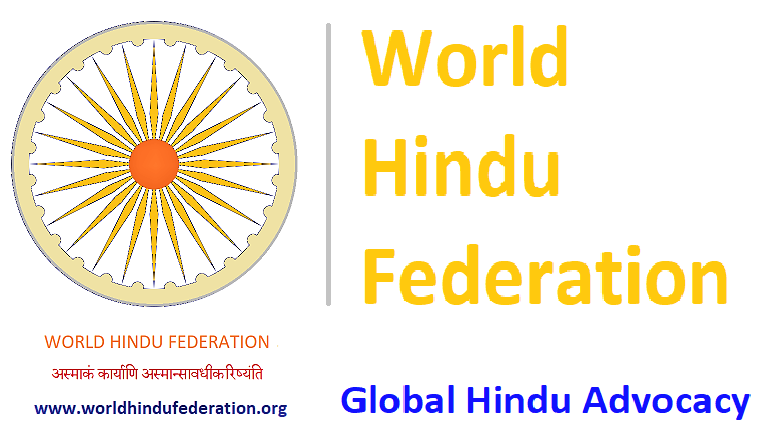About US
अस्माकं कार्याणि अस्मान्सावधीकरिष्यंतिOnly Action Will Define Us
Who We Are
The World Hindu Federation (WHF) is a non-profit advocacy organization of Hindu Diaspora communities with a unique perspective, a deep sense of purpose and the courage and tenacity to tackle crucial issues of concern to Hindu communities across the world.We represent Hindu communities and organizations in over 100 countries around the world. Founded in 2016, WHF's work impacts a range of issues from the portrayal of Hinduism to political and human rights to addressing contemporary problems, such as inter-religious conflict, by applying the Guiding Spirit of Dharma.
Our Vision
Channeling the dynamism & vitality of the vast Global Hindu Diaspora to positively impact humanity.
Our Mission
WHF's mission is to empower Hindu Communities & enhance the well-being of Hindus across the globe.
Our Philosophy
अस्माकं कार्याणि अस्मान्सावधीकरिष्यंति ( Only action will define us ).
Our Goals
- WHF encouragesthe maintaining of Hindu cultural identity in harmony with the larger community wherever Hindus reside across the world.
- WHF promotes dignity, mutual respect, and pluralism in order to ensure the well-being of all Hindus.
- WHF fosters awareness of issues affecting Hindus.
- WHF engages in providing Seva (service) to the Hindu diaspora communities.
- WHF works to enhance the welfare of Hindu people and to advance human rights and democratic values for all.
- Through establishing important global alliances among diverse dharmic, fraternaland like-minded pacifist groups, WHF builds coalitions to advance issues of common concern to all Hindus.
- WHF strives to bring together the best minds in Global Hinduism to ideate on key regional and international issues, promote initiatives that further the cause of peace and global harmony & monitor social, economic and political trends that have a bearing on Hindu unity, progress & well-being.
Our Dharmic Principles
- Sanatan Sanskriti : Hinduism, is amongst the world's oldest religious traditions, has no beginning--it precedes recorded history. It has no human founder. It is a mystical religion, leading the seeker to personally experience the Truth within oneself.
- Punya Bhoomi : India, the birth place of Hinduism is an integratedspace of culturally diverse Hindus who have a deep spiritual relationship with the land of Bharat Varsha,represented through its ancient sacred geography of tirths, rivers, forests, mountains & seas.
- Dharma : Dharma is the “universal moral order” and includes behaviours’ that are considered to be in accord with ‘rta’, the order that makes life and universe possible, and includes duties, rights, laws, conduct, virtues and "right way of living".
- Moksha : Hindus believe that the soul reincarnates, evolving through many births until all karmas have been resolved, and moksha, liberation from the cycle of rebirth, is attained. Not a single soul will be deprived of this destiny.
- Ahimsa : Hindus believe that all life is sacred, to be loved and revered, and therefore practice ahimsa, non-injury, in thought, word and deed.
- Samsāra : In Hinduism, Saṃsāra is a journey of the soul. The body dies, assert the Hindu traditions, but not the soul which it assumes to be the eternal reality, indestructible and pure bliss. Hindu scriptures teach that the future is both a function of current human effort derived from free will and past human actions that set the circumstances.
- Karma : Hindus believe in karma, the law of cause and effect by which each individual creates his own destiny by his/her thoughts, words and deeds.
- Syadvad : Hindus believe that no religion teaches the only way to salvation above all others, but that all genuine paths are facets of truth, deserving tolerance and understanding.
- Anitya : Hindus believe that the universe undergoes continuous & endless cycles of creation, preservation and dissolution. All physical and mental events, come into being and dissolve. Human life embodies this flux in the aging process, the cycle of repeated birth and death (Samsara), nothing lasts, and everything decays.
- Purusharth : Classical Hindu thought accepts four proper goals or aims of human life : Dharma, Artha, Kama and Moksha.
- Vasudhaiva Kutumbakam : The uniqueness of Hindu Dharma and the culture& traditions as practiced by Hindu communities has a significant contribution to make for the benefit of all humanity.
